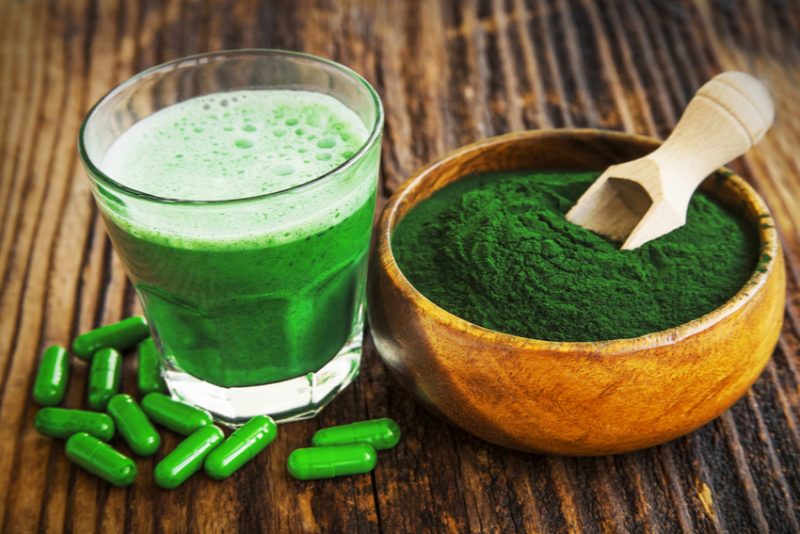
Many people are encouraged to take spirulina as a nutritional supplement. It is already considered a superfood that allows us to increase our intake of vitamins and minerals naturally.
Discover what properties it has for our health and when and how we should take spirulina to make it more effective. Do not miss it.
Contents
What is Spirulina?
Spirulina is a blue-green algae found in low-salinity, alkaline, and warm waters. Its name originates from its curious spiral-shaped structure, even tho its scientific name is.
It is one of the most complete and nutritious foods, something that NASA already demonstrated in 1988 when incorporating spirulina into the diet of astronauts.
But long before, the Aztecs already consumed it to increase their resistance when they had to make significant efforts. It is also an excellent supplement for athletes.
Nutritional values
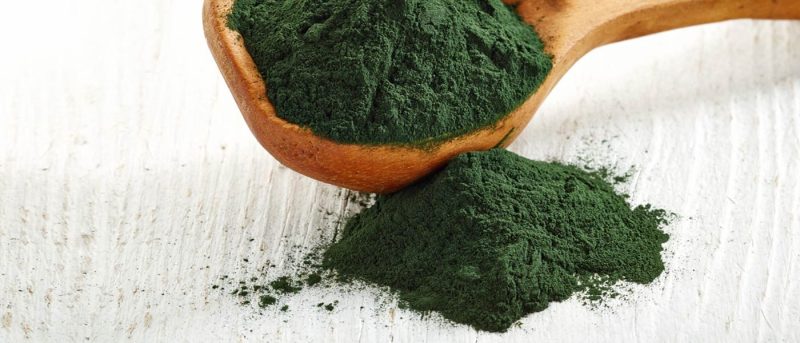 Thanks to its excellent and complete nutritional values, spirulina is very effective for treating all kinds of deficits and improving some disorders. We review its functional composition:
Thanks to its excellent and complete nutritional values, spirulina is very effective for treating all kinds of deficits and improving some disorders. We review its functional composition:
- It is one of the best vegetable protein sources of high biological value and good digestibility. It has a percentage of 65 or 70% protein.
- It is rich in chlorophyll, the green pigment that stands out for its great detoxifying power.
- It is rich in B, C, D, and E vitamins.
- It contains minerals such as potassium, selenium, copper, manganese, magnesium, phosphorus, or zinc.
- Contains digestive enzymes.
- It stands out for its antioxidant virtues (thanks to its natural pigments): chlorophyll, carotenoids, and phycocyanins. This is revealed by a study published in the Archives of Toxicology (2016).
- 7% of its content is essential fatty acids.
Health properties
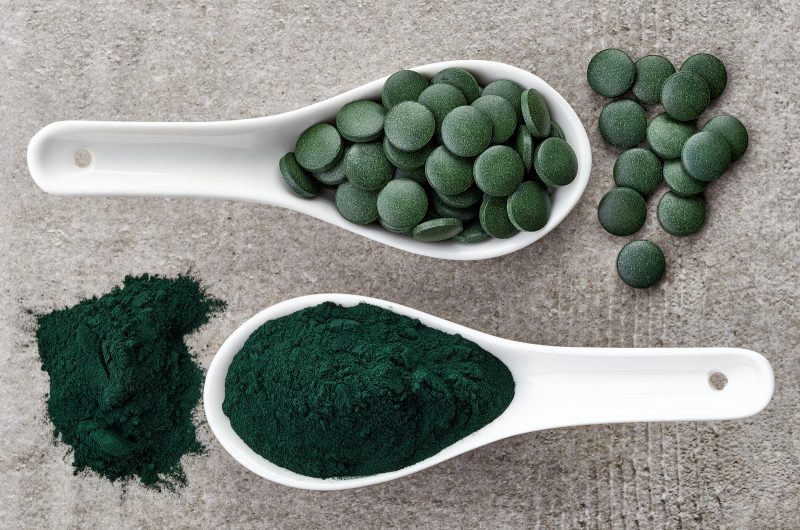
Below, we list the healing properties and benefits that taking spirulina brings to our health.
- It facilitates weight loss, so it is recommended in healthy weight-loss diets. This is due to its satiating power as it activates the metabolism and, therefore, fat burning.
- It reduces inflammation, improves joint pain, and could prevent osteoporosis.
- It prevents and fights anemia without having to take iron supplements. It also improves the immune system.
- It is believed that it could improve our energy and vitality levels while reducing fatigue and stress. However, there are still no conclusive studies in this regard.
- Improves concentration and memory.
- Its antioxidant virtues help us prevent aging at a superficial and cellular level, from the progressive damage caused by free radicals, the passage of time, stress, etc.
How and when to take spirulina
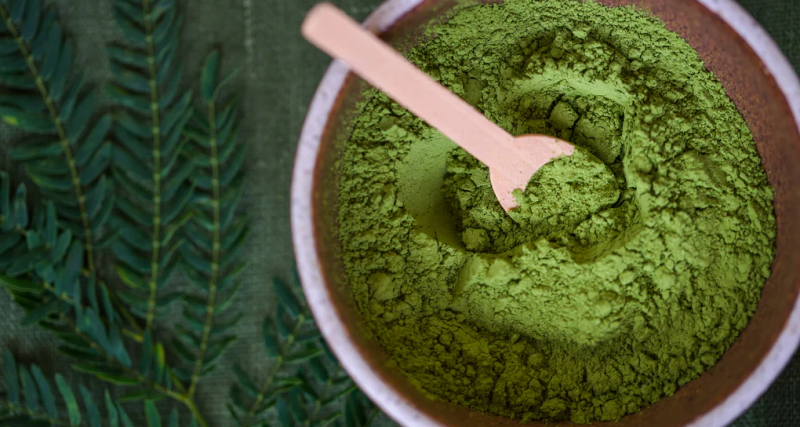 The way and time to take spirulina depends on the objectives
The way and time to take spirulina depends on the objectives
- If we weigh, we take spirulina half an hour before each meal with a glass of water. In this way, the seaweed produces a natural satiating effect that helps us eat less without going hungry.
- If we want to gain weight, we must take spirulina, along with dessert, right after lunch.
- As a specific treatment for a disorder, it is taken on an empty stomach for half an hour before eating food.
- It will be taken in green smoothies made with fruits and green leafy vegetables as a nutritional supplement.
No academic studies support these indications about intake times, so it is recommended to consult a specialist first.
We recommend choosing a good quality spirulina, organic if possible, to avoid containing components harmful to health since algae have high absorbent power.
Recommended dose
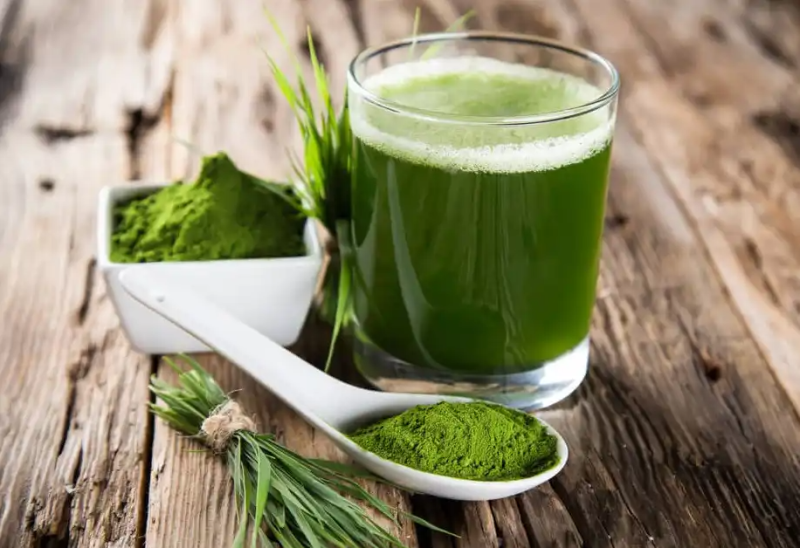 We can take spirulina powder mixed with water or with food
We can take spirulina powder mixed with water or with food
It is essential to start with a low amount due to the high purifying power of this alga, which could cause some discomfort, such as healing symptoms ( headache, intestinal disorders, etc.). For this reason, it is also recommended to drink plenty of water during treatment, at least one and a half liters a day, separated from meals.
Precautions before taking spirulina
Although it is easy to understand how and when to consume this food, it is essential to take some precautions so as not to fall into excess and allow it to take effect as it should:
- Spirulina is not the solution to all your weight or health problems; it is simply a help. Understand that it is not a “superfood.” It would be best if you accompanied your consumption of a healthy lifestyle in which exercise and a healthy diet abound.
- Do not stop consuming foods of plant origin. Although spirulina may seem to contain everything we need, it is not. For example, it is still deficient in vitamin B12, which you can easily find in tomatoes or lettuce.
- Beware of thyroid problems. Consuming this food in large quantities is associated with higher consumption of iodine, an element that not everyone consumes in abundance. If you have hyperthyroidism, it is worth limiting your consumption and consulting a professional.
- Its consumption should be restricted in patients with phenylketonuria. Due to its phenylalanine content, people suffering from this condition should limit their consumption.
In short, spirulina is a noble food that can help a lot to improve the state of health. You have to follow the advice for consumption and consult your trusted nutritionist or doctor in case of doubt.